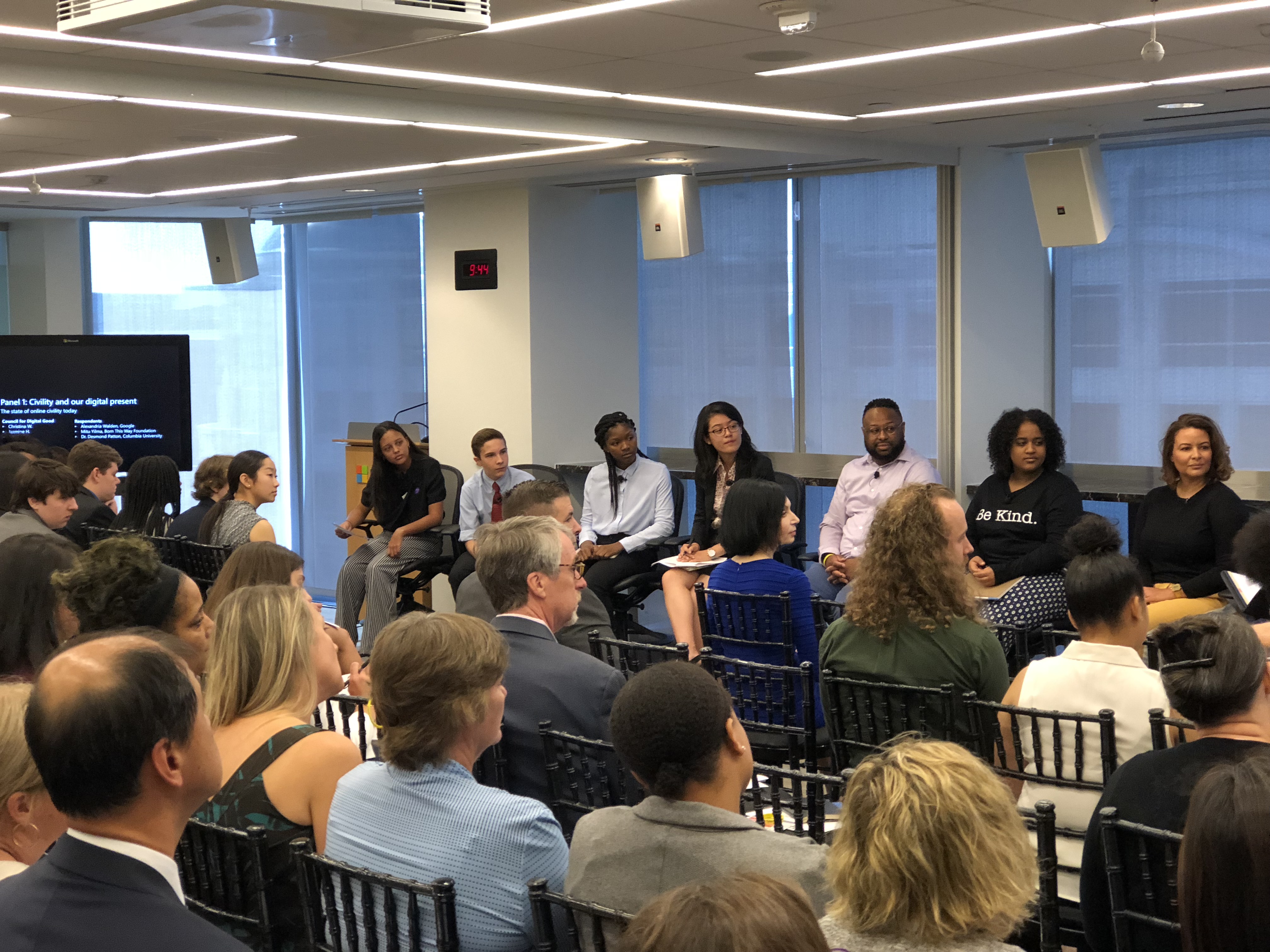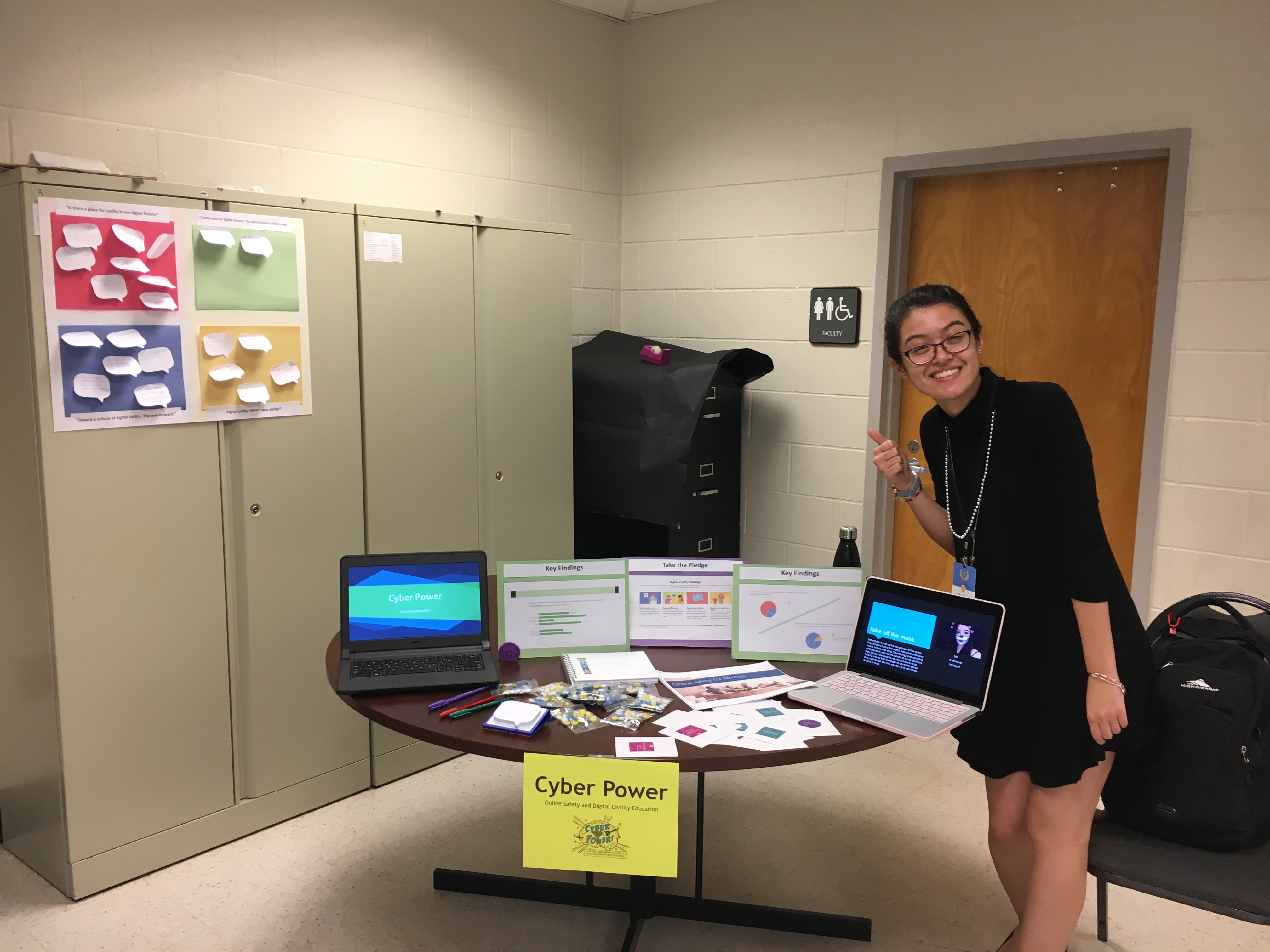If you don’t know what exactly “digital civility” means, you’re not alone. Even as a 17-year old girl and a supposed digital native, I sure didn’t either.
That is, I had never stopped to put a name to the concept. Digital civility? Being civil online? Shouldn’t that already be a given and understood by all? Shouldn’t we intuitively know that we should be kind or - at the very least - tolerant online?
These questions have puzzled me ever since I joined my first multi-player, online platforming game when I was seven and social media network when I was eleven. Technically, I was younger than I really should have been for both, and even then all those years ago, I noticed a lot of ugliness online. Hateful, demeaning words seemed rampant in any and every comment section or chat room, and I’m sure there were a lot of other bad things that I wasn’t even aware of at the time.
As a sheltered kid, I was blissfully unaware of some of the other issues that plague youth online until my elementary school brought in a guest speaker to talk to the fifth graders about online safety. I knew the basic “Don’t give away any personal information online!” from my own parents’ discussions, but the guest speaker shared with us several personal stories of kids running into trouble online. She talked about the discrete ways that kids often accidentally share personal information, and I remember sitting there on the floor, staring up at the speaker, in a bit of a shock because I could identify situations where I had done some of the things she said we should not be doing.
Honestly, it freaked me out a little bit. I went home and changed all of my privacy settings on my social media. I blocked the random accounts that had followed me. For my online gaming, I told myself I would not share any personal information with other people or go to external chat rooms. While this seemed a little drastic to my friends at the time, it was a big turning point for me. Even as just a “pre-teen,” I was able to re-evaluate a lot of my personal decisions online and get a better grasp of the consequences of my online actions.
These newfound “online values,” if you will, followed me into both middle and high school. I’m like most other kids in that I’m constantly online, but what I have found that makes me a bit different from a lot of my peers can be boiled down to one phrase: a conscientious digital citizen.
That’s a bit of a mouthful. Like I said before, in the past, I had never even heard of the words “digital” and “civility” being used together. But I think “conscientious” is the best adjective here because, as an online user, I feel a moral responsibility to use the Internet in its intended, positive ways: to foster the spread of knowledge and connect us with our family, friends, and others across the globe. I firmly believe that, as a society, we must hold both ourselves and each other accountable for our online conduct. Otherwise, who will?

For the past 18 months, I’ve explored these ideas and what “digital civility” actually means with 14 other kids in the United States as part of Microsoft Corporation’s inaugural Council for Digital Good. We’re a cohort of teens who have had our fair share of online experiences and want to improve the current state of online interactions and culture. For me, my beliefs about how the Internet should be used started with that epiphany in fifth grade health class, and that presentation has really stuck with me because I don’t know if I would have developed such strong, core values and beliefs about online safety and online culture if not for the guidance of that guest speaker.
All of this brings me to the key point that I want to make in this blogpost: Parents, caregivers, and other adults involved in kids’ lives, please open up dialogue with these kids about what they’re up to online and their online safety.
As a senior in high school, I see quite a divide in kids’ mindsets when it comes to online use and digital civility. A lot of them see digital civility as a joke, or online safety as a pointless hindrance from their parents, but for some, it was a topic that was definitely important to them. From “nomophobia” (the fear of being without your phone) and the “fear of missing out” to impossible standards and drama that permeate from the real world into the online sphere, both young boys and girls are faced with a whole new terrain of challenges to navigate. For those who haven’t experienced these issues, it’s easy to say that cyberbullying, for instance, isn’t really as big as a problem as some make it out to be. Yes, a kid could turn off a device and walk away from it, but the damage has already been done. Words stick with us, and for people still trying to figure out who they are, it’s hard to forget others’ snide, anonymous comments online. Situations escalate as kids don’t know how to approach their parents about these problems or are too embarrassed and/or afraid to say anything; at the same time, it doesn’t help that a lot of parents don’t seem to know the best way to talk to their kids about their online behaviors.
That’s why, with the support of the Council and others, I investigated the biggest online concerns that the parent community of my former elementary school has for their children. This past spring, I presented to these local parents, as well as some educators, a quick crash course on life online and how they can reach out to their kids (without pushing them away) about their online conduct and safety.

It was an eye-opening experience for me to see so many people in my community who didn’t really know where to begin with educating themselves about what their kids are actually up to online, so I’ve made it a personal mission to continue to share various resources and insight with parents on how to handle the challenges of the Internet and online interactions. However, by the same token, I didn’t want to scare them away from letting their children enjoy the benefits that the Internet provides. Essentially, I wanted to help parents find the appropriate balance of honest dialogue, as oftentimes, the Internet is painted as a completely cruel, dangerous place. It has so much potential to support knowledge and empowerment, though; youth just need to be given guidance about how to utilize the Internet in such ways and also become self-advocates for themselves. And that starts with parents and caregivers: the first line of defense and education.
I want to encourage anyone reading this to take a step back and assess their own values and how they translate into the online sphere. Are you aware of the consequences - good and bad - of your online actions? How are you contributing to online culture? Digital civility is such a multifaceted concept that affects everyone using the Internet; it is thus imperative that we open up dialogue on why the online world is the way it is… We all can - and should - champion the message of digital civility so that we can make the Internet a safer, healthier, and simply better place for all.
All photos courtesy of the Woodrow family.
















.svg)

